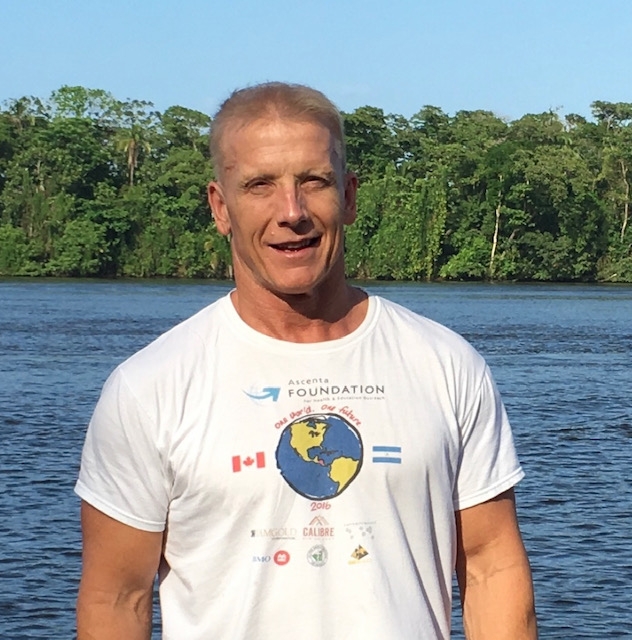What is frailty?
Frailty is a syndrome characterized by a decreased ability to adapt to stressors, increasing the risk of adverse health outcomes (falls, hospitalizations, death, etc.). There can be many causes of frailty, but the effects are weakness, loss of muscle mass, loss of balance, and weight loss. Approximately 10% of people ≥65 years old are frail, increasing to 15.7% in people 80–84 years old, and 26.1% in people ≥85 years old.[1]
What are the main signs and symptoms of frailty?
People with frailty experience decreased energy, strength, and balance; weight loss; and trouble performing activities of daily living, such as showering, brushing teeth, and getting dressed. Correspondingly, when people with frailty experience physical or emotional stresses, such as death of a loved one, illness, or injury, their physical capacity can decline rapidly.
What are some of the main medical treatments for frailty?
Since people with frailty manage multiple health conditions, are vulnerable to adverse health outcomes, and require additional social support, treatment is multimodal and should treat the following components:[4]
- Medical conditions (e.g., diabetes, cardiovascular disease)
- Mental health
- Cognitive impairment
- Decreased mobility
- Participation in life roles
- Social support systems
Have any supplements been studied for frailty?
On their own, protein[5], Vitamin D[6], and DHEA[7], show no effect on frailty status. One study found that milk fat globule membrane supplementation in combination with exercise improved frailty status.[8] A meta-analysis of randomized controlled trials found that a combination of protein supplementation and exercise can also mitigate the physical aspects of frailty.[9]
How could diet affect frailty?
Malnutrition is the predominant concern among people who are frail. Ensuring that people with frailty have enough calories, protein, fruits, vegetables, and micronutrients in their diet can help reduce the risk of experiencing the adverse health outcomes associated with frailty.[10]
Are there any other treatments for frailty?
Exercise is another tool that can improve physical function and prevent adverse health outcomes (i.e., falls) in people with frailty. Current guidelines recommend that people with frailty should undergo a physical activity program consisting of aerobic, balance, and resistance training.[11] Gentler forms of exercise, such as Tai Chi, may also be helpful for people with frailty.[12][13] Since there are no recommendations for the optimal frequency, intensity, or duration of an exercise program for frailty, the program should be tailored to the individual's health goals and physical capacity.
What causes frailty?
There is no one cause for frailty. It is a multifaceted disease that can arise from chronic health conditions (e.g., cardiovascular disease, dementia, sarcopenia, type-2-diabetes), aging, or psychosocial factors.
Examine Database: Frailty
Research FeedRead all studies
In this prospective cohort study, higher intakes of cheese, but not yogurt or milk, were associated with an increased risk of frailty.
Frequently asked questions
Frailty is a syndrome characterized by a decreased ability to adapt to stressors, increasing the risk of adverse health outcomes (falls, hospitalizations, death, etc.). There can be many causes of frailty, but the effects are weakness, loss of muscle mass, loss of balance, and weight loss. Approximately 10% of people ≥65 years old are frail, increasing to 15.7% in people 80–84 years old, and 26.1% in people ≥85 years old.[1]
Many symptoms of sarcopenia and frailty overlap. Both conditions feature weakness, fatigue, and unintentional weight loss. Sarcopenia is a condition that features decreased muscle mass and strength, while frailty is a complex syndrome that arises from multiple health problems. Thus, sarcopenia — which focuses on the size and function of muscle — can be one of the causes of frailty.
People with frailty experience decreased energy, strength, and balance; weight loss; and trouble performing activities of daily living, such as showering, brushing teeth, and getting dressed. Correspondingly, when people with frailty experience physical or emotional stresses, such as death of a loved one, illness, or injury, their physical capacity can decline rapidly.
There is no consensus on the standard diagnostic criteria of frailty. Two diagnostic criteria, the Fried Phenotype model[2] and the Frailty Index (FI)[3], are the most widely used.
The Fried Phenotype model classifies an individual as frail if they meet at least three of the following five criteria [3]:
- Slow walking speed
- Poor grip strength
- Unintentional weight loss of >10 pounds in the past year
- Decreased physical activity
- Self-reported exhaustion
The Frailty Index (FI) describes frailty as the accumulation of health deficits (any symptom, disease, or abnormal laboratory findings), resulting in decreased physiological reserve. The sum of an individual's accumulated health deficits is divided by the total amount of possible health deficits within a population sample. The FI score ranges from 0.1–1.0. The higher the score, the more frail the individual.[2]
Since people with frailty manage multiple health conditions, are vulnerable to adverse health outcomes, and require additional social support, treatment is multimodal and should treat the following components:[4]
- Medical conditions (e.g., diabetes, cardiovascular disease)
- Mental health
- Cognitive impairment
- Decreased mobility
- Participation in life roles
- Social support systems
On their own, protein[5], Vitamin D[6], and DHEA[7], show no effect on frailty status. One study found that milk fat globule membrane supplementation in combination with exercise improved frailty status.[8] A meta-analysis of randomized controlled trials found that a combination of protein supplementation and exercise can also mitigate the physical aspects of frailty.[9]
Malnutrition is the predominant concern among people who are frail. Ensuring that people with frailty have enough calories, protein, fruits, vegetables, and micronutrients in their diet can help reduce the risk of experiencing the adverse health outcomes associated with frailty.[10]
Exercise is another tool that can improve physical function and prevent adverse health outcomes (i.e., falls) in people with frailty. Current guidelines recommend that people with frailty should undergo a physical activity program consisting of aerobic, balance, and resistance training.[11] Gentler forms of exercise, such as Tai Chi, may also be helpful for people with frailty.[12][13] Since there are no recommendations for the optimal frequency, intensity, or duration of an exercise program for frailty, the program should be tailored to the individual's health goals and physical capacity.
There is no one cause for frailty. It is a multifaceted disease that can arise from chronic health conditions (e.g., cardiovascular disease, dementia, sarcopenia, type-2-diabetes), aging, or psychosocial factors.
References
- ^Collard RM, Boter H, Schoevers RA, Oude Voshaar RCPrevalence of frailty in community-dwelling older persons: a systematic review.J Am Geriatr Soc.(2012-Aug)
- ^Searle SD, Mitnitski A, Gahbauer EA, Gill TM, Rockwood KA standard procedure for creating a frailty index.BMC Geriatr.(2008-Sep-30)
- ^Fried LP, Tangen CM, Walston J, Newman AB, Hirsch C, Gottdiener J, Seeman T, Tracy R, Kop WJ, Burke G, McBurnie MA,Frailty in older adults: evidence for a phenotype.J Gerontol A Biol Sci Med Sci.(2001-Mar)
- ^Fairhall N, Langron C, Sherrington C, Lord SR, Kurrle SE, Lockwood K, Monaghan N, Aggar C, Gill L, Cameron IDTreating frailty--a practical guide.BMC Med.(2011-Jul-06)
- ^Oktaviana J, Zanker J, Vogrin S, Duque GThe effect of protein supplements on functional frailty in older persons: A systematic review and meta-analysis.Arch Gerontol Geriatr.(2020)
- ^Cai Y, Wanigatunga AA, Mitchell CM, Urbanek JK, Miller ER, Juraschek SP, Michos ED, Kalyani RR, Roth DL, Appel LJ, Schrack JAThe effects of vitamin D supplementation on frailty in older adults at risk for falls.BMC Geriatr.(2022-Apr-10)
- ^Muller M, van den Beld AW, van der Schouw YT, Grobbee DE, Lamberts SWEffects of dehydroepiandrosterone and atamestane supplementation on frailty in elderly menJ Clin Endocrinol Metab.(2006 Oct)
- ^Hunkyung Kim, Takao Suzuki, Miji Kim, Narumi Kojima, Noriyasu Ota, Akira Shimotoyodome, Tadashi Hase, Erika Hosoi, Hideyo YoshidaEffects of exercise and milk fat globule membrane (MFGM) supplementation on body composition, physical function, and hematological parameters in community-dwelling frail Japanese women: a randomized double blind, placebo-controlled, follow-up trialPLoS One.(2015 Feb 6)
- ^Liao CD, Lee PH, Hsiao DJ, Huang SW, Tsauo JY, Chen HC, Liou THEffects of Protein Supplementation Combined with Exercise Intervention on Frailty Indices, Body Composition, and Physical Function in Frail Older Adults.Nutrients.(2018-Dec-04)
- ^Feart CNutrition and frailty: Current knowledge.Prog Neuropsychopharmacol Biol Psychiatry.(2019-12-20)
- ^E Dent, J E Morley, A J Cruz-Jentoft, L Woodhouse, L Rodríguez-Mañas, L P Fried, J Woo, I Aprahamian, A Sanford, J Lundy, F Landi, J Beilby, F C Martin, J M Bauer, L Ferrucci, R A Merchant, B Dong, H Arai, E O Hoogendijk, C W Won, A Abbatecola, T Cederholm, T Strandberg, L M Gutiérrez Robledo, L Flicker, S Bhasin, M Aubertin-Leheudre, H A Bischoff-Ferrari, J M Guralnik, J Muscedere, M Pahor, J Ruiz, A M Negm, J Y Reginster, D L Waters, B VellasPhysical Frailty: ICFSR International Clinical Practice Guidelines for Identification and ManagementJ Nutr Health Aging.(2019)
- ^Lee SY, Nyunt MSZ, Gao Q, Gwee X, Chua DQL, Yap KB, Wee SL, Ng TPAssociation of Tai Chi exercise with physical and neurocognitive functions, frailty, quality of life and mortality in older adults: Singapore Longitudinal Ageing Study.Age Ageing.(2022-04-01)
- ^Kasim NF, Veldhuijzen van Zanten J, Aldred STai Chi is an effective form of exercise to reduce markers of frailty in older age.Exp Gerontol.(2020-07-01)
Examine Database References
- Cognitive Decline - Muller M, van den Beld AW, van der Schouw YT, Grobbee DE, Lamberts SWEffects of dehydroepiandrosterone and atamestane supplementation on frailty in elderly menJ Clin Endocrinol Metab.(2006 Oct)
- Estrogen - Kenny AM, Boxer RS, Kleppinger A, Brindisi J, Feinn R, Burleson JADehydroepiandrosterone combined with exercise improves muscle strength and physical function in frail older womenJ Am Geriatr Soc.(2010 Sep)
- Functionality in Elderly or Injured - Rodondi A, Ammann P, Ghilardi-Beuret S, Rizzoli RZinc increases the effects of essential amino acids-whey protein supplements in frail elderlyJ Nutr Health Aging.(2009 Jun)
- Functionality in Elderly or Injured - Nasimi N, Sohrabi Z, Nunes EA, Sadeghi E, Jamshidi S, Gholami Z, Akbarzadeh M, Faghih S, Akhlaghi M, Phillips SMWhey Protein Supplementation with or without Vitamin D on Sarcopenia-Related Measures: A Systematic Review and Meta-Analysis.Adv Nutr.(2023-Jul)
- Fracture Risk - Bischoff-Ferrari HA, Willett WC, Wong JB, Stuck AE, Staehelin HB, Orav EJ, Thoma A, Kiel DP, Henschkowski JPrevention of nonvertebral fractures with oral vitamin D and dose dependency: a meta-analysis of randomized controlled trialsArch Intern Med.(2009 Mar 23)







